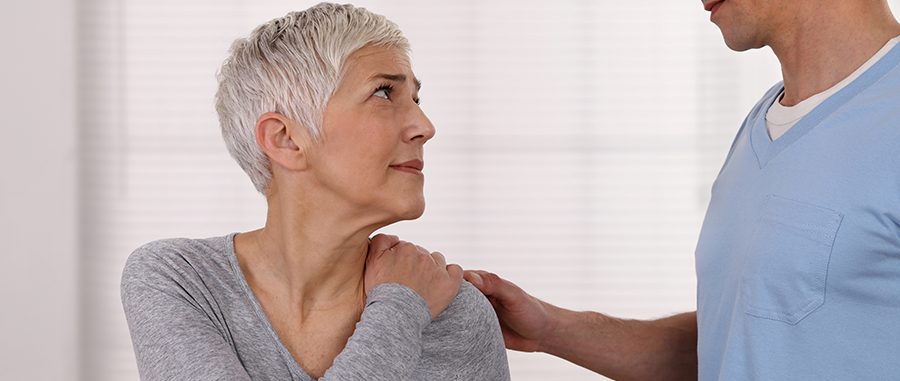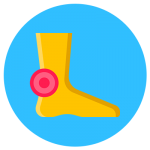
Regenerative medicine is a cellular-level therapy that aims to improve the function of damaged or diseased tissue or organs by introducing cells to replace damaged cells. Today, regenerative medicine is being used to treat medical conditions across a range of medical specialties, including orthopedics, rheumatology, cardiology, neurology, and immunology.
How Stem Cells Work
Respond
When an area of the body is injured or not functioning properly, distress signals are sent through the bloodstream. These signals serve to recruit mesenchymal stem cells to the affected area.
Dock
Once in the affected area, stem cells dock on other cells and begin to produce signalling proteins that work to regulate inflammation, aid in angiogenesis, and promote tissue repair.
Specialize
Stem cells then mature to carry out the functions of the cells that are needed. In this way, they compensate for the cells that are damaged, nonfunctional, or lacking to improve organ function, and consequently improve disease symptoms.

What Are Stem Cells?
Stem cells are fundamentally the building blocks of life and have the potential to differentiate into many different types of cells within the body. Stem cells are actively involved in repairing, regenerating, and rebuilding damaged or absent tissue in the body that has been affected by disease, infection, or injury.
Type of Stem Cells Used?
We use only the best source of stem cells, containing the highest therapeutic quality bioactive biomolecules of Wharton’s jelly derived stem cells and its extracellular matrix along with amniotic membranes available. The main therapeutic medium used are umbilical cord stem cells, exosomes, placental stem cells, amniotic stem cells, and PRP.
Source of Stem Cells?
All the stem cells that we attain are from ethically obtained healthy live cesarean births. The mothers are donating willfully, and they must go through an extensive medical history questionnaire as well as several blood tests to make sure they are healthy and free from all communicable diseases. Once the umbilical cord and placental tissues are removed, the tissues are tested again, as well as the mother and infant.
How Do Stem Cells Heal?
Receptors on stem cells allow them to migrate to areas that need healing and effect change in that area, potentially becoming new cells in the area and create new tissue to help improve functionality. They secrete chemicals which activate and attract your body’s native stem cells to initial tissue regeneration. There are numerous scientific evidence that show amazing reparative potential of these cells.
What Makes Mesenchymal Stem Cells (MSCs) Different?
MIGRATION

Mesenchymal Stem Cells (MSCs) have a special ability to move to specific tissues, going where the body needs them most. This means that stem cells can be injected into the bloodstream to then move on their own to the affected area.
REPAIR

In the case of tissue damage, MSCs have the ability to release growth factors and specialize into a number of tissue cell types that allow for the tissue to be regenerated.
IMMUNOMODULATION

When foreign cells are introduced in the body, the concern is that they will often generate an immune response. Because MSCs express very few antigens on their surfaces that can generate an immune response (like MHCI or MHCII), they do not elicit a reaction from the patient’s immune system T-cells, making them safe to use.
REDUCTION OF INFLAMMATION

MSCs reduce the signal cells that promote inflammation (like TNF-alpha and TNF-gamma). While this is another function that helps them to avoid the immune response, it is also essential to stem cells’ utility in chronic and autoimmune diseases characterized by inflammation.
Who Is It For?
Treatments are designed to work for both athletes recovering from injuries and those who experience chronic pain. Amnion-derived fluid has potential clinical benefits in a variety of applications and has been used to treat injuries such as:
Podiatry/Orthopedics
- Tendinitis
- Bursitis
- Plantar Fasciitis
- Ruptured Achilies Tendon
- Osteo-Chrondral Defects
- Labral Tears Shoulder/Hip
- Flexor Tendon Repair
- Osteoarthritis
Pain Management
- Hip Abductor/Adductor Tears
- Knee Injections
- MCL/LCL Tears
- Rotator Cuff Lesions
- Epicondylitis (Tennis Elbow)
- Hamstring Strains/Tears
- Chronic Non-Healing Wounds
- Ankle Sprain
Cosmetic Treatments
- Hair Restoration
- Facial Rejuvenation
- Erectile Dysfunction


